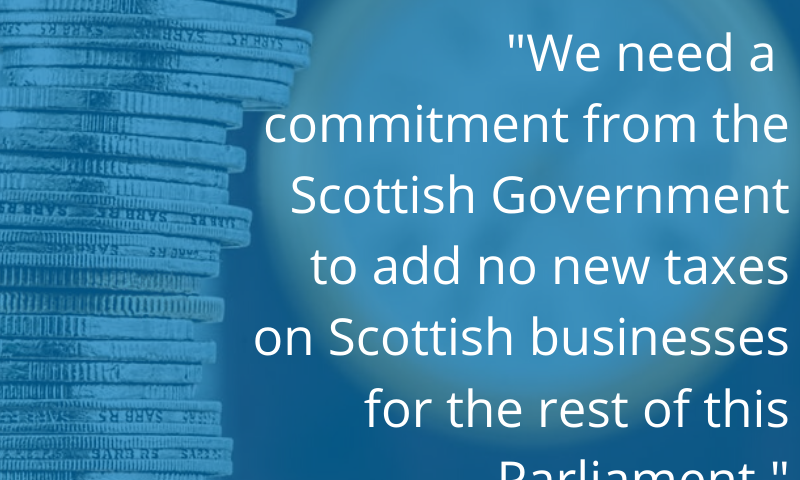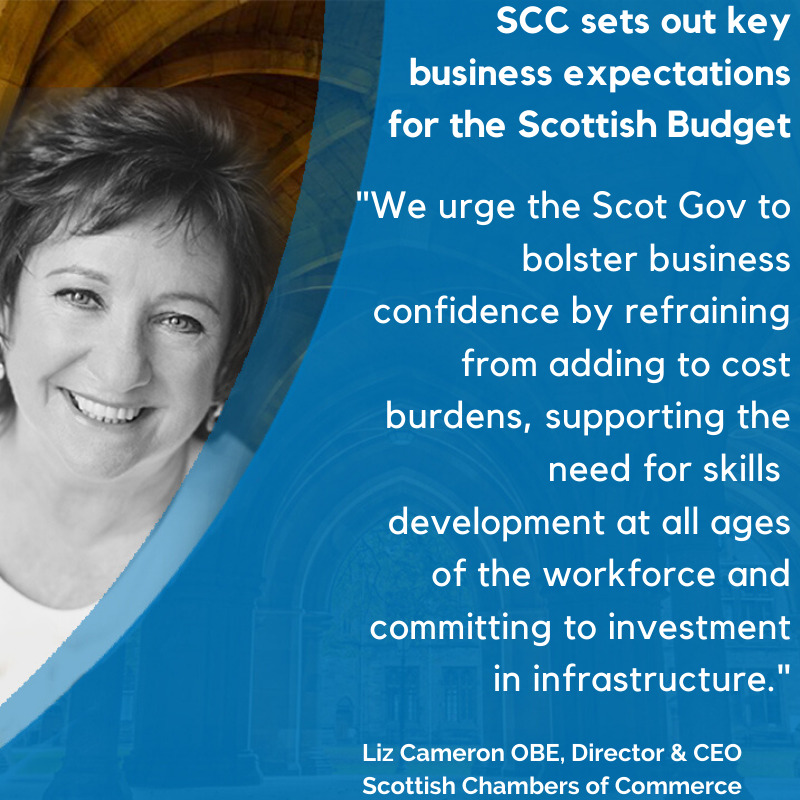SCC Sets Out Key Business Expectations For The Scottish Budget

Update On The Non-Domestic Rates (Scotland) Bill
05/02/2020
Ministerial Visit Amongst February ICC Events
06/02/2020SCC Sets Out Key Business Expectations For The Scottish Budget

Business Certainty
The Scottish Chambers of Commerce (SCC) Network has set out key areas the Scottish Government should address in its Budget to help stem the uncertainty of recent years, build renewed confidence, and ensure that all policies and public funds are directed at building an infrastructure which will truly strengthen the Scottish economy.
Dr Liz Cameron, Chief Executive of the Scottish Chambers of Commerce said:
“We have been in regular discussions with the Scottish Government making it clear the concerns and issues facing Chamber members all across Scotland.
“Ministers are well aware that, having been battered and bruised by uncertainty in recent years, businesses are clamouring for stability and where possible, the right support and infrastructure which we need now. We all need to up our pace with actions on the ground.
“Scottish businesses remain unbowed and have ambitions to build on our strengths and grow new markets, particularly internationally. This is the opportunity for the Scottish Government to bolster business confidence and investment by actions which demonstrate that they are listening and open for business enabling all of us to grow.
“They must refrain from adding yet further costs to business operations. We hope that we hear plans which will focus on investing in infrastructure, supporting skills development and a partnership driven by the needs of business at its foundation”.

SCC – Scottish Budget
Key policy areas the Scottish Chambers of Commerce has asked the Scottish Government to address in the Budget:
Business Certainty:
- A commitment from the Scottish Government to add no new taxes on Scottish businesses for the rest of this Parliament.
Business Costs:
- Economic research has shown that concerns over the cost of doing business have been consistently on the rise in Scotland and measures must be brought in to alleviate business concerns and reduce business costs. As a minimum, this should include a timetabled plan to reduce the headline business rates poundage rate and bring the Large Business Supplement into line with the rest of the UK ensuring competitive parity.
Business Connectivity:
- Commit to complete upgrades of the A9 and A96 to ensure the connection between important regions of the Scottish economy.
- Commit to government support for the Glasgow Metro tram network across Glasgow & continue to work with business to help realise the economic potential of the River Clyde through the Clyde Mission.
- Step up efforts on the dualling and electrification of the Highland Main Line and the necessary rail upgrades that are required to better connect the North East with the Central Belt.
- Ensure a level-playing field for the aviation industry to improve connectivity and facilitate export opportunities.
- Redouble efforts and fast track the delivery of superfast broadband to 100% of business premises.
Business International:
- Streamline private and public support agencies to provide improved co-ordination on exports support and international trade delivery, which will reduce costs for business.
- Work with business to champion the needs of industry to tackle any tariff barriers that may negatively impact Scottish products or services during trade negotiations.
Business Skills:
- Expand on long-term support for Foundation, Modern and Graduate Apprenticeships to ensure continued demand is met and expand support in ongoing training for the existing workforce.
- Review the Flexible Workforce Development Fund, ensuring the system is more accessible and flexible for industry.
- No further income tax rises or changes to banding to enable businesses to have the ability to attract, recruit and retain talent in Scotland.
Business Sustainability:
- Pro-actively collaborate with the UK Government to ensure the oil and gas industry plays a critical role in enabling the transition to net-zero, as well as supporting Scottish sectors to embrace net-zero.
- Adopt a joined-up approach between business and government to facilitate private sector innovation which meets the delivery of sustainable policies, including the growth of the Circular Economy agenda.


